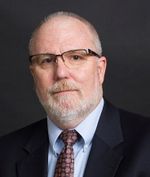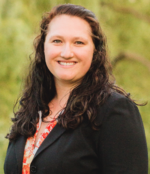Development of SEBoK v. 2.3
This version of the SEBoK was released 30 October 2020. This is a minor release, including two new articles: Brief History of Systems Engineering and Portfolio Management. A number of additional minor edits, including a new overview graphic for the SEBoK, clean up of existing pages, software updates, etc. were incorporated.
Content and Feature Updates for v. 2.3
As we have mentioned in previous briefings, the “Top 10 Most Viewed Pages” shifts from month to month. I find it interesting to understand what knowledge is being sought after in the SEBoK. So, in that spirit, here are the Top 10 pages viewed for September 2020:
Types of Models Types of Systems Stakeholder Needs and Requirements System Requirements Reliability, Availability, and Maintainability Systems of Systems (SoS) Life Cycle Models System Life Cycle Process Models: Vee System Architecture Systems Engineering Overview So, what is new in this 14th release?
When you go to the top pages of each Part, you will find a new graphic. The old graphic needed to be retired so we could add Part 8 which first appeared in the last release. This graphic reflects the connectivity of the multiple parts of the SEBoK.
We moved to a newer version of the underlying Mediawiki platform that fixes bugs and improves performance, fixed typos in a number of articles, and made numerous other small housekeeping updates. More importantly, the major content changes in this version are:
A new article on Cycles and the Cyclic Nature of Systems in Part 2/Systems Science/ provided by Gary Smith (Part 2 Lead Editor) You will find a new article on Portfolio Management in Part 6/SE and Project Management/ provided by Eric Speckling, Greg Parnell and Ed Pohl. Thanks to Holly Handley from ODU for updating the Human Systems Integration article in Part 6/SE and Specialty Engineering/. We have added five new videos to the Part 6/SE and Specialty Engineering/Security Engineering article. These videos were created by Keith Willett, with support from the INCOSE Systems Security Engineering Working Group.
BKCASE Governing Board
The three SEBoK steward organizations – the International Council on Systems Engineering (INCOSE), the Institute of Electrical and Electronics Engineers Systems Council (IEEE-SYSC), and the Systems Engineering Research Center (SERC) provide the funding and resources needed to sustain and evolve the SEBoK and make it available as a free and open resource to all. The stewards appoint the BKCASE Governing Board to be their primary agents to oversee and guide the SEBoK and its companion BKCASE product, GRCSE.
The BKCASE Governing Board includes:
- The International Council on Systems Engineering (INCOSE)
- Art Pyster (Governing Board Chair), Paul Frenz
- Systems Engineering Research Center (SERC)
- Jon Wade, Cihan Dagli
- IEEE Systems Council (IEEE-SYSC)
- Stephanie White, Bob Rassa
Past INCOSE governors Bill Miller, Kevin Forsberg, David Newbern, David Walden, Courtney Wright, Dave Olwell, Ken Nidiffer, Richard Fairley, Massood Towhidnejad, John Keppler. The governors would also like to acknowledge Andy Chen and Rich Hilliard, IEEE Computer Society, who were instrumental in helping the Governors to work within the IEEE CS structure and who supported the SEBoK transition to the IEEE Systems Council.
The stewards appoint the SEBoK Editor in Chief to manage the SEBoK and oversee the Editorial Board.
Editorial Board
The SEBoK Editorial Board is chaired by the Editor in Chief, who provide the strategic vision for the SEBoK. The EIC is supported by a group of Editors, each of whom are responsible for a specific aspect of the SEBoK. The Editorial Board is supported by the Managing Editor, who handles all day-to-day operations. The EIC, Managing Editor, and Editorial Board are supported by a student, Madeline Haas, whose hard work and dedication are greatly appreciated.
| SEBoK Editor in Chief | |
|---|---|
|
University of South Alabama Responsible for the appointment of SEBoK Editors and for the strategic direction and overall quality and coherence of the SEBoK. | |
| SEBoK Managing Editor | |
|---|---|
|
Systems Engineering Research Center nicole.hutchison@stevens.edu or emtnicole@gmail.com Responsible for the the day-to-day operations of the SEBoK and supports the Editor in Chief. | |
Each Editor has his/her area(s) of responsibility, or shared responsibility, highlighted in the table below.
| SEBoK Part 1: SEBoK Introduction |
|---|
University of South Alabama rcloutier@southalabama.edu |
| SEBoK Part 2: Foundations of Systems Engineering | |
|---|---|
Airbus gary.r.smith@airbus.com | |
| Assistant Editor: Dov Dori
Massachusetts Institute of Technology (USA) and Technion Israel Institute of Technology (Israel) Responsible for the Representing Systems with Models knowledge area |
Assistant Editor: Duane Hybertson
MITRE (USA) Jointly responsible for the Systems Fundamentals, Systems Science and Systems Thinking knowledge areas. |
| Assistant Editor: Peter Tuddenham
College of Exploration (USA) |
Assistant Editor: Cihan Dagli
Missouri University of Science & Technology (USA) Responsible for the Systems Approach Applied to Engineered Systems knowledge areas. |
| SEBoK Part 3: Systems Engineering and Management | |
|---|---|
| Assistant Editor: Barry Boehm
University of Southern California (USA) Jointly responsible for the Systems Engineering Management and Life Cycle Models knowledge areas |
Assistant Editor: Kevin Forsberg
OGR Systems Jointly responsible for the Systems Engineering Management and Life Cycle Models knowledge areas |
| Assistant Editor: Gregory Parnell
University of Arkansas (USA) Responsible for Systems Engineering Management knowledge area. |
Assistant Editor: Garry Roedler
Lockheed Martin (USA) Responsible for the System Concept Definition and System Definition knowledge areas. |
| Assistant Editor: Phyllis Marbach
Incose LA (USA) |
Assistant Editor: Ken Zemrowski
ENGILITY Responsible for the Systems Engineering Standards knowledge area. |
| SEBoK Part 4: Applications of Systems Engineering | |
|---|---|
Systems Engineering Research Center (SERC) tmcdermo@stevens.edu | |
| Assistant Editor: Judith Dahmann
MITRE Corporation (USA) Jointly responsible for Product Systems Engineering and Systems of Systems (SoS) knowledge areas. |
Assistant Editor: Michael Henshaw
Loughborough University (UK) Jointly responsible for Product Systems Engineering and Systems of Systems (SoS) knowledge areas |
| Assistant Editor: James Martin
The Aerospace Corporation Responsible for the Enterprise Systems Engineering knowledge area. | |
| SEBoK Part 5: Enabling Systems Engineering | |
|---|---|
Systems Engineering Research Center nicole.hutchison@stevens.edu | |
| Assistant Editor: Emma Sparks
Cranfield University Jointly responsible for the Enabling Individuals and Enabling Teams knowledge areas. |
Assistant Editor: Rick Hefner
California Institute of Technology |
| Assistant Editor: Bernardo Delicado
MBDA / INCOSE | |
| SEBoK Part 6: Related Disciplines | |
|---|---|
George Mason University (USA) apyster@gmu.edu | |
| SEBoK Part 7: Systems Engineering Implementation Examples |
|---|
FAA Technical Center |
| SEBoK Part 8: Emerging Knowledge |
|---|
Purdue University |
Student Support
Madeline Haas, a student at George Mason University, is currently supporting the SEBoK and we gratefully acknowledge her exemplary efforts. Ms. Haas has also taken responsibility for managing the Emerging Research knowledge area of the SEBoK. The EIC and Managing Editor are very proud of the work Madeline has done and look forward to continuing to work with her.

